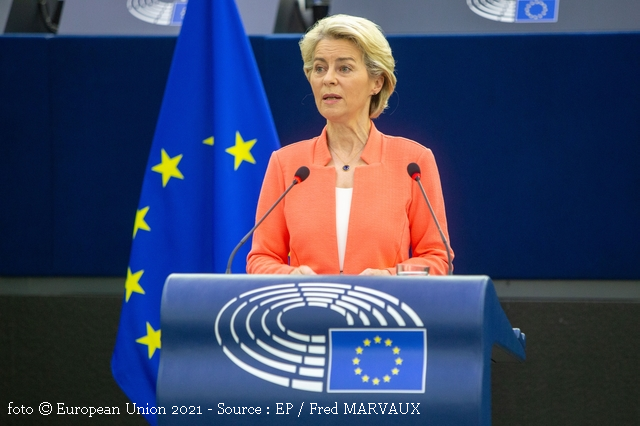Measures for the green transition
The President of the European Commission wants Europe to be a leader in the clean technologies industry

Roxana Vasile, 16.03.2023, 13:50
The president of the European Commission, Ursula von der Leyen, asked the community institutions to urgently adopt two measures, so that Europe should remain a leader in the clean technologies industry. These are closely related to the European Green Deal, through which the member states aim to achieve, by 2050 at the latest, the so-called climate neutrality, whereby the quantities of greenhouse gas emissions on European territory will no longer increase. Through the first measure considered, the head of the EC wants that, by 2030, 40% of the clean technology be produced in the European Union.
Through the second measure, the aim is to facilitate the access of European companies to the materials necessary for the green transition, which implies the diversification of the supply chain, given that the Union is currently dependent on China. According to Ursula von der Leyen, the minerals that make phones, electric vehicles, batteries, chips, wind turbines, solar panels functional, i.e. all the new technology, come in overwhelming amounts from China. However, Canada, for example, could become a partner of the European Union in this sense.
Then, the European officials want to extract as many rare materials as possible from the European Union, to increase the processing capacity of these materials and to increase recycling. Statistics show that global investments in clean technologies exceeded 1,000 billion dollars last year, 30% more than in 2021, and by 2030 these investments will triple, hence the need for the European Union to attract many more. Meanwhile, steps are being taken in Romania in the process of transition to a green society. Thus, according to an emergency ordinance adopted by the Government, real estate developers will be obliged, for example, to install electric car charging sockets in the new apartment buildings.
The owners of old buildings will have the same obligation if they do major renovations. It is one of the conditions required by the European Commission for Romania to receive the second payment request from the National Recovery and Resilience Plan worth 3.2 billion Euros. The Romanian government also adopted a law that establishes a financial aid scheme for SMEs and large companies to help them build waste recycling facilities. According to the PM Nicolae Ciucă, the aid amounts to approximately 26 million Euros.
Last but not least, the Government decided to take out of operation, from June of this year, the coal-based units in the south of the country, from the Turceni and Rovinari thermal power plants, and to preserve them for 3 years. If needed, these units will be made operational again. The largest thermal power plant in Romania operates in Turceni, which, together with the plants in Rovinari and Craiova, account for about a third of Romania’s electricity production. (LS)






























